Projector
Monitor
Lighting
Interactive Display | Signage
Remote Work & Learning
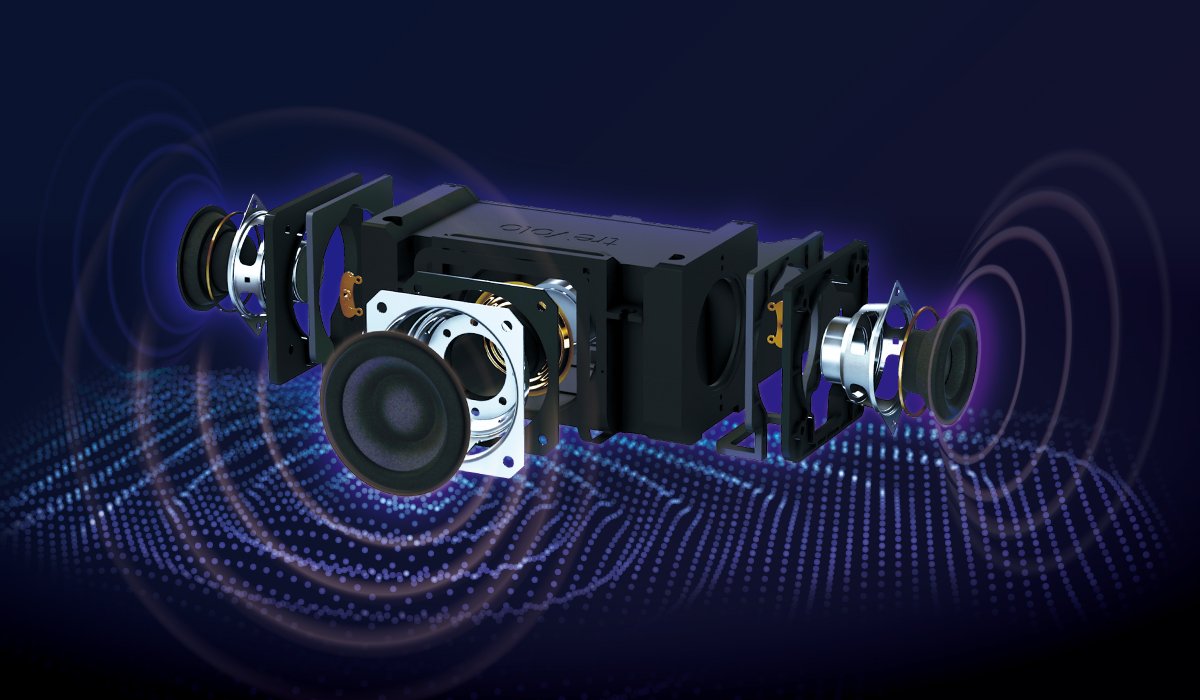
As the scope of settings where projectors are used grows thanks to continual advances in portable projector technology, a common fear many prospective buyers might have is that the sound quality produced by projectors with such small form factors will not complement the images that they produce. Whereas such an assumption might have been true in the past, evolutions in projector design and sound engineering have made such fears outdated. Instead, it is truer now more than ever that you can get the cinematic sound you desire out of a portable projector so long as you choose the right projector.
What then should a consumer check for when purchasing a portable projector to make sure that it produces quality audio that will complement the abundance of content available to them? This article will help guide you in this journey by outlining the elements that contribute to good sound design in a projector, as well as pointing out some vital technology that will further inform your choice.

High-quality sound for a projector starts with the basics, meaning its actual structural design. How a projector is designed helps ensure not only that the sound produced by the speaker is initially crisp and clear, but also that that sound is not hampered, but is rather enriched, by the projector itself. In discussing the various aspects of a projector’s design that relates to its sound quality, we use the term projector-fit speaker design to signify the entire package of design considerations that helps produce quality sound, which we will break down further below.
Furthermore, Digital Signal Processor (DSP) chips and algorithms coupled with custom psychoacoustic tuning from audio experts will also assist the speaker to create sophisticated sound profiles based on what suits the audience and setting.
Projector-fit speaker design is a concept that encompasses a range of things that allows the projector to produce cinematic sound, including aspects like the sound hole design, projector housing, the speaker cabinet/enclosure, and the driver used.
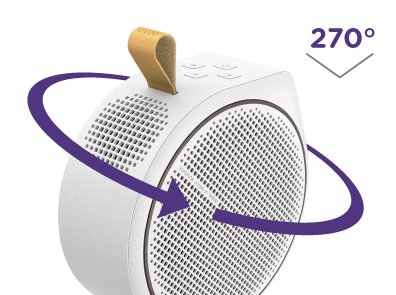
One of the most fundamental requirements for an effective projector in terms of audio is its ability to create surround sound, and a major determinant for this is having a sound hole design that encompasses 270° (left, right, and rear) of the projector’s chassis. This type of design allows the right and left channels to be broadcasted independently to create the three-dimensional sound that is intrinsic to so many movies and videos these days.
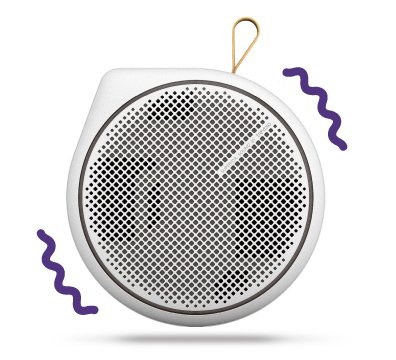
The basic structure of the projector and the cabinet in which the speaker is installed also play a major part in the sound system. This is because a stable build and dedicated housing prevents reverberations and distortion in the sound, while also expanding the limits of said sound since high-powered audio, including strong bass, tends to produce strong vibrations and tremors which a shoddier design might not be able to withstand.
Whereas the items above relate to how the sound travels through the projector, the speaker driver itself is foundational to the projector’s sound system. An effective projector needs to employ a speaker whose material is able to sensitively translate the different timbres produced at each sound frequency, so that the final sound is crisp and clear to the ear.
Beyond the strictly hardware-related items described above, the ability to create different sound effect also needs digital enhancements that help mold raw audio into something that is specially geared towards both the audience and viewing context.
The first item that can contribute to this part of the equation, is a discrete DSP chip within the projector that allows it to employ algorithms that fine tweak the audio data whichever way is needed. For example, if a boost to an audio track’s bass is required, it is the DSP chip and its algorithms that not only make the boost possible but also defines the extent to which the bass is boosted.
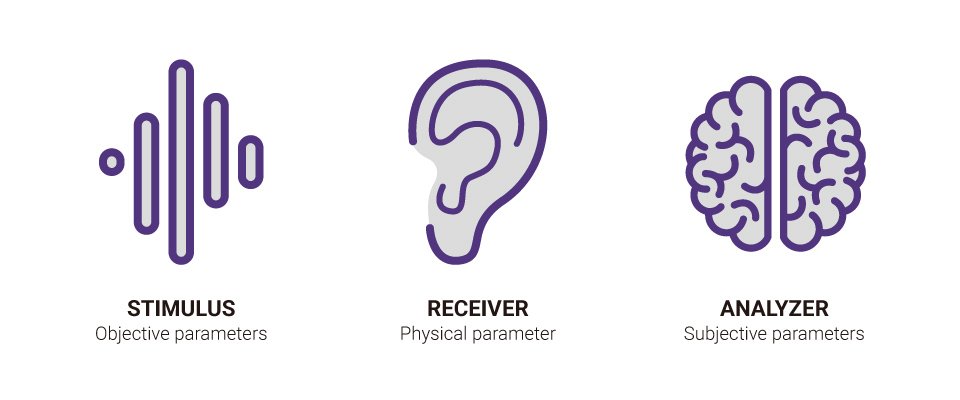
Once a sound system has strong DSP capabilities, it will further need custom psychoacoustic tuning to put those capabilities to work. Psychoacoustic tuning means tuning, done by professional sound engineers, that accounts for the subjectiveness of hearing and thus adapts the sound to the listener and their needs. This may take the form of a default sound profile that is optimal for movie watching and/or various pre-configured sound modes suitable for the different settings/situations where the projector may be used.
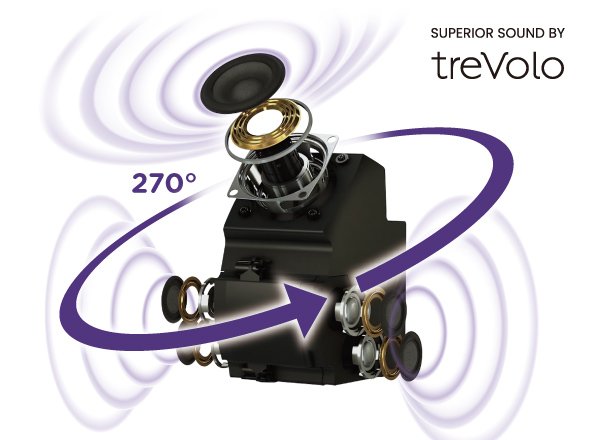
Given the entire discussion above, how then does BenQ’s line of portable projectors fulfill the array of requirements described?
First in terms of the speaker design, our portable projectors feature a 270° sound field design for their sound holes, multi-point suspension within a dedicated housing to keep resonance and static from the chassis in check, and a custom bass reflex port coupled with a Conex damper for rich and heavy bass. All of this is designed around a speaker driver that utilizes a neodymium magnet to make it efficient in delivering its crystal-clear audio, and in the case of GS50, a paper pulp cone that fosters smooth and natural sound.
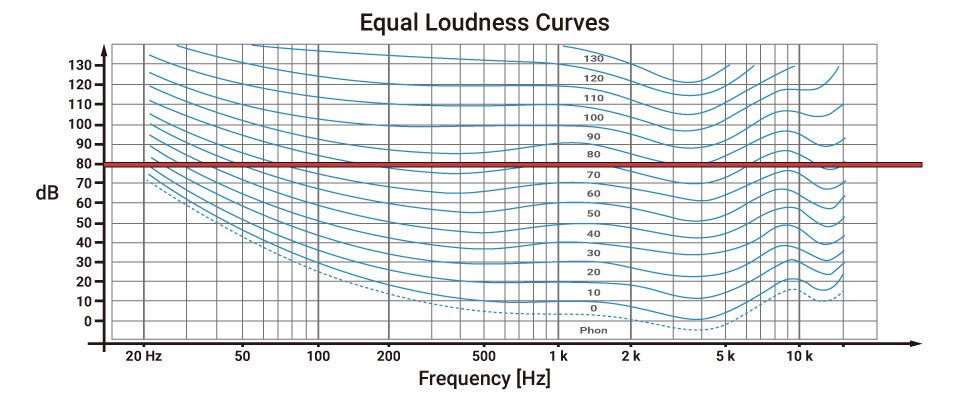
To top it all off our portable projectors are equipped with discrete DSP chips and high-quality algorithms that can fine-tune audio signals into crystal-clear sound, further supplemented by our proprietary treVolo psychoacoustic tuning – crafted by our in-house acoustic experts – that heightens the audio experience and adapts it to the listener.
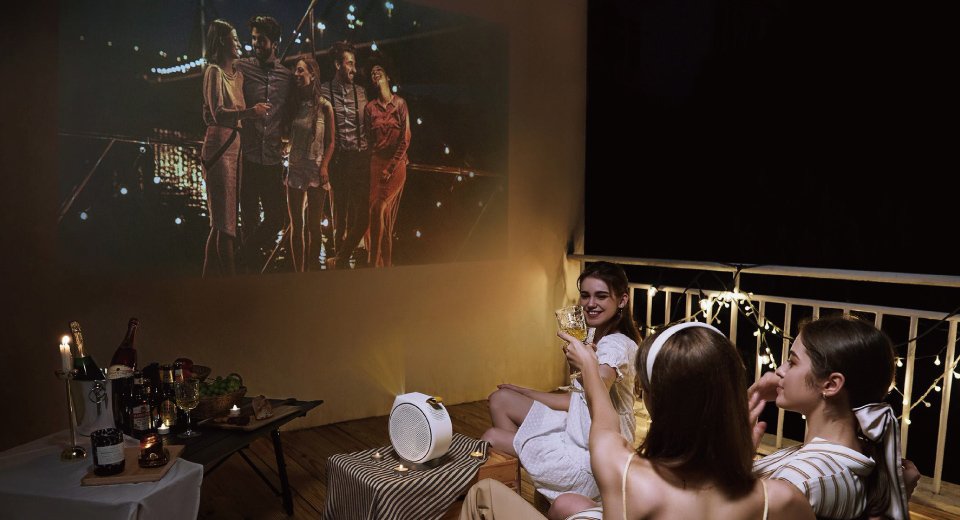
By integrating all of these elements into projectors that can also produce the immersive images that BenQ is known for, those considering a portable projector to take with them wherever they go can rest assured that they’ll get the same level of enjoyment that they would in a home theater.